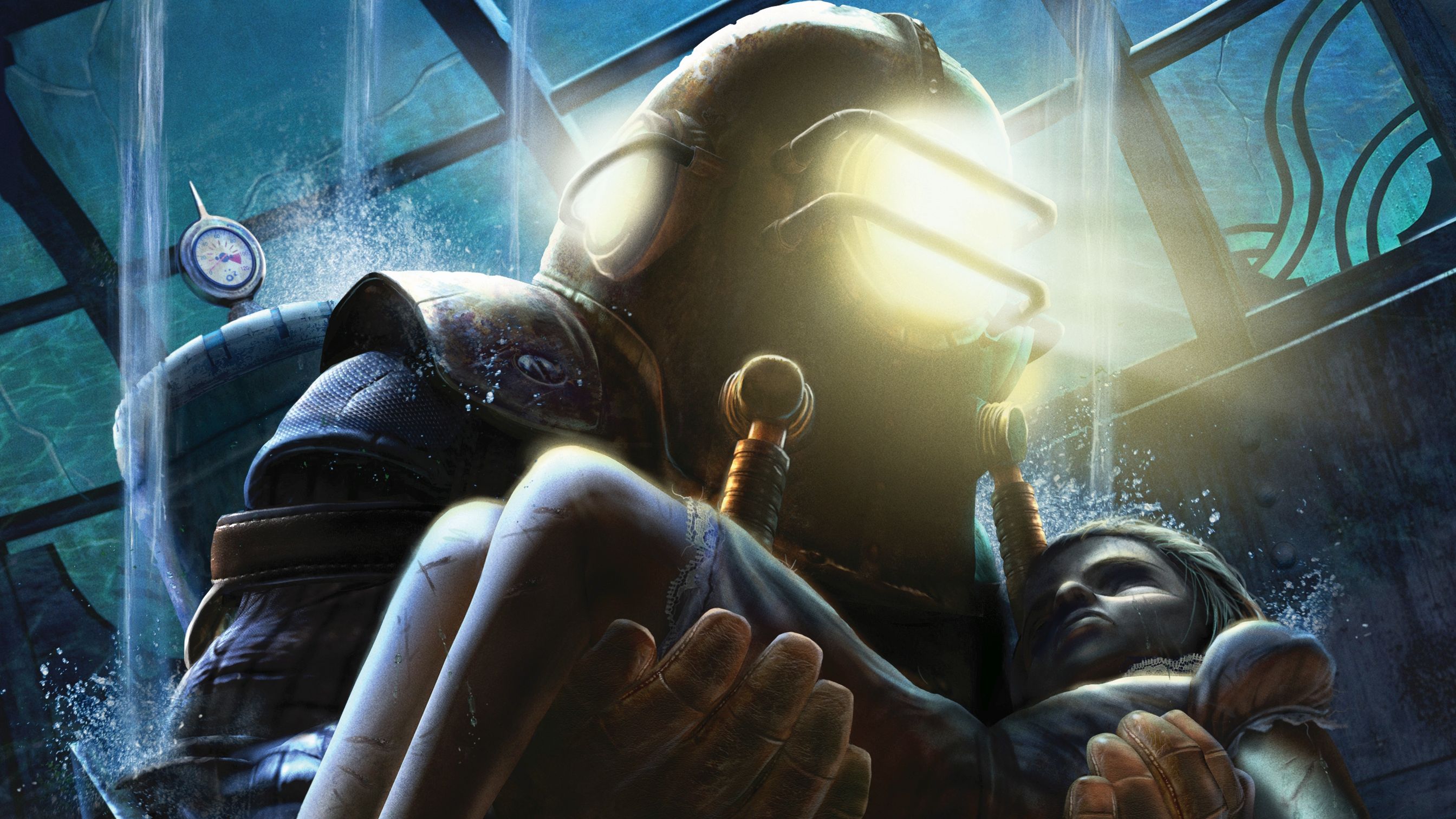Director of Bioshock movie says it's 'one of the best games ever created'
"We already have our take, outline, and all that kind of stuff, so that's all done."

Pretty much since it came out (prepare to feel old: 2007) people have been trying to bring Bioshock to the big screen. The game is widely regarded as having one of the most memorable worlds and stories the medium has produced, and its opulent aesthetic makes it seem like almost the perfect fit for film. These attempts have never gone well, but earlier this year Netflix announced its intention to finally make it happen.
And things are happening. Director Francis Lawrence, best-known for The Hunger Games and having just finished Slumberland on the streaming platform, is now at the helm of the project, and the script is being written by Michael Green, who among other things wrote Blade Runner 2049. In a new interview with Collider, Lawrence says the pair have plotted it out, the movie's currently being written, and it may be his next project.
"Michael Green, who wrote Blade Runner 2049, among other things, and who's been a friend of mine for years, he's writing it," said Lawrence. "And he's in the middle of writing it right now. We already have our take, outline, and all that kind of stuff, so that's all done. He's now just actually writing. That's why I said it's a real possibility of [it] being what's next."
Lawrence also gets brownie points just for playing the game, which you can't take for granted, and reckons there's a great movie in there because of the thematic weight behind the world and its characters.
"First of all, I think it's one of the best games ever created," said Lawrence. "It's also, I think, one of the most visually unique games ever created. The other thing, and one of the things that always appeals to me, is it is very thematic. There's real ideas and philosophies underneath the game property, and it's really, really, really thought out. A lot of games may have a great world of some kind, or they may have a great lead character, or they may tee you up for great set-pieces, but they don't really have the ideas, they don't have the kind of weight and the gravitas that Bioshock does."
There's high praise too for the aesthetic ("you have what feels like a period piece, mixed with body horror, mixed with sci-fi"), one part of which is body horror. Rapture is a world where the human body has been treated like a science experiment, one where the horror of what you face is how human and twisted it all is.
"There's always discussions about rating and tone," said Lawrence. "I don't want to get into it too much now because it's pretty early on in the process, but I certainly have not felt stifled in any way, or sent in any directions with Netflix ... A lot of it is staying really true to the game itself, and we're talking to Take-Two and Ken Levine.
Keep up to date with the most important stories and the best deals, as picked by the PC Gamer team.
There is a big problem the movie will have to face, which is that the narrative of the game hinges on upsetting the player's notions of agency. Andrew Ryan remains lodged in players' minds because of what he did to them in that moment, how he took control and lifted the veil for a moment. Such a revelation has no real meaning in a cinematic sense so, while some elements of a Bioshock film seem as simple as 'put the game on the screen', the big problem with adapting this most cinematic of games is that at its heart the narrative meaning is inextricable from its nature as a game.
Lawrence is confident regardless that the ideas are rich enough they have a shot at making a great movie. "There's some great videogames out there, but they don't always have the weight of actual ideas underneath them," said Lawrence. "Sometimes they have a great aesthetic or something like that, but I feel like often they end up feeling empty because they're not built from real ideas. The thing is, BioShock really is. The whole mythology of that world and the ideas behind it all, there's just so much there."
Netflix's Bioshock adaptation has not yet moved into production, but this certainly seems more promising than past attempts. It probably looks, in this age of videogame streaming shows seeing huge success, like a sure thing. But as Rapture itself shows, looks can be deceiving.

Rich is a games journalist with 15 years' experience, beginning his career on Edge magazine before working for a wide range of outlets, including Ars Technica, Eurogamer, GamesRadar+, Gamespot, the Guardian, IGN, the New Statesman, Polygon, and Vice. He was the editor of Kotaku UK, the UK arm of Kotaku, for three years before joining PC Gamer. He is the author of a Brief History of Video Games, a full history of the medium, which the Midwest Book Review described as "[a] must-read for serious minded game historians and curious video game connoisseurs alike."

